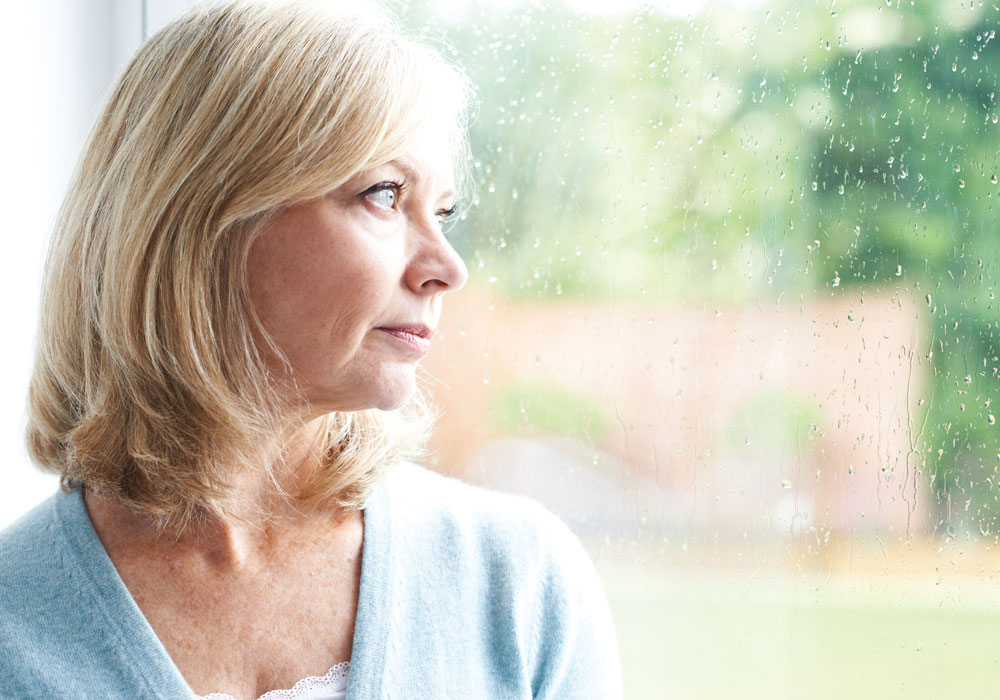By Jyothirmai Gubili, MS, Eugenie Spiguel, MSN, ANP-BC, and Yen Nien (Jason) Hou, PharmD, DiplOM, LAc
An estimated 16% of patients with cancer experience depressive spectrum disorders in oncologic, hematologic, and palliative care settings, seriously affecting their quality of life. Although conventional antidepressants can be effective in many situations, they are associated with adverse effects, such as fatigue, drowsiness, sleep difficulties, nausea, weight gain, nervousness, dry mouth, blurred vision and sexual dysfunction.
Traditional Chinese Medicine for Depression and Anxiety
Xiao Yao San (XYS) is a traditional Chinese medicine (TCM) formulation of eight herbs. It has a long history of use for treating depression and anxiety, and to relieve stress. A modified formula, Jia Wei XYS, which includes two additional herbs, is often used to manage symptoms including anxiety, mood, and fatigue associated with climacteric syndrome.
In a systematic review of 26 randomized control trials totaling 1,837 patients with depressive symptoms, researchers reported that XYS and its modified forms, combined with antidepressants such as selective serotonin reuptake inhibitors (SSRIs), tricyclics, or tetracyclics, were superior to antidepressants alone for alleviating depression measured by the Hamilton depression rating scale (HAMD) and self-rating depression scale scores. Also, the TCM formulas did not increase the rate of side effects.
In a meta-analysis of 40 trials across 3,549 participants that included 11 studies involving XYS, researchers found that TCM formulas improved HAMD scores and led to better clinical outcomes. When used alone, TCM produced fewer side effects than antidepressants, and when used concomitantly, TCM decreased the number or severity of side effects from the antidepressants.
Similar benefits were reported in another large meta-analysis of 55 studies involving 5,572 participants that included 12 trials with XYS. Those randomized to TCM formulas (with or without SSRIs) had statistically significant improvements in HAMD scores along with less severe and fewer side effects.
Evidence also shows that XYS may be useful in oncology settings. Conclusions from a review of 18 trials with 1,441 patients with gastric, lung, esophageal, breast, or liver cancer patients that included 4 XYS studies showed benefits of TCM formulas over conventional antidepressants, including improvements in HAMD scores and fewer instances of functional gastrointestinal disorders, sleep disturbances, blurred vision, and fatigue.
Additional studies using Jia Wei XYS suggest that it may have antianxiolytic effects. In a multicenter trial, researchers randomized 192 patients with mild to moderate depression and anxiety to receive Jia Wei XYS or sertraline for eight weeks. Patients who received Jia Wei XYS had similar improvements in HAMD, Hamilton Anxiety Rating Scale, and the Clinical Global Impression Scale scores as those who took sertraline. Patients in the Jai Wei XYS arm also experienced lower rates of side effects at the 12-week follow-up.
Furthermore, a small comparative effectiveness study reported subjective improvements in sleep quality with Jia Wei XYS alone and when combined with the benzodiazepene estazolam.
Both XYS and Jia Wei XYS need to be evaluated in larger, methodologically robust trials because the current evidence is limited by small sample size, risk of bias, and variations in treatment dosage and duration.
Research is also needed to determine the mechanisms of action via which the formulas exert their biological effects. Available data suggest that XYS may regulate lactic acid, glycerol, glutamine, glutamic acid, hypoxanthine, myo-inositol, and cholesterol levels, which are known to play a role in D-glutamine and D-glutamate metabolism, arginine biosynthesis, and alanine, aspartate, and glutamate metabolism.
No side effects have been reported with XYS, but patients taking Jia Wei XYS have experienced headache, dizziness, fatigue, and mild diarrhea.
What Oncology Nurses Need to Know
Although antidepressants can be effective in treating depressive symptoms and anxiety in patients with cancer, patients may not want to take the medications or may experience intolerable side effects. XYS and Jia Wei XYS are TCM herbal formulas that have been shown to be helpful in alleviating depression and anxiety. Both can be used in conjunction with conventional treatments, thereby enhancing their overall effectiveness and decreasing side effects. By offering multiple treatment options and referring patients to a licensed TCM practitioner, oncology nurses can enhance patient satisfaction and potentially improve clinical outcomes.






